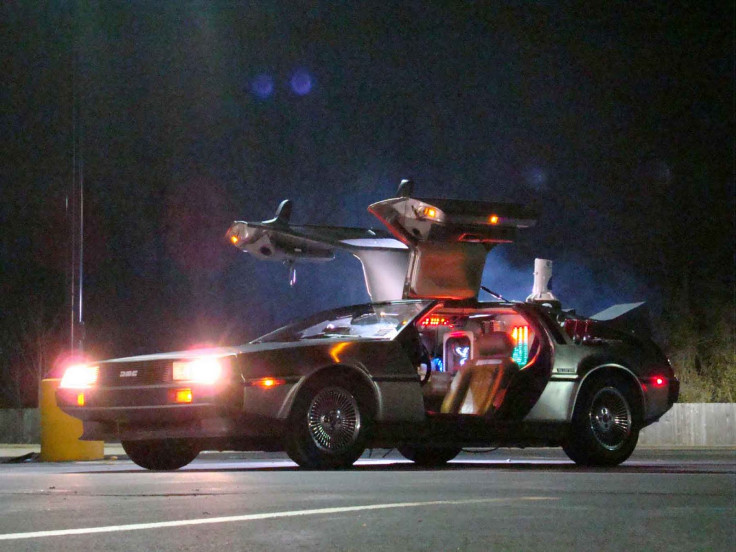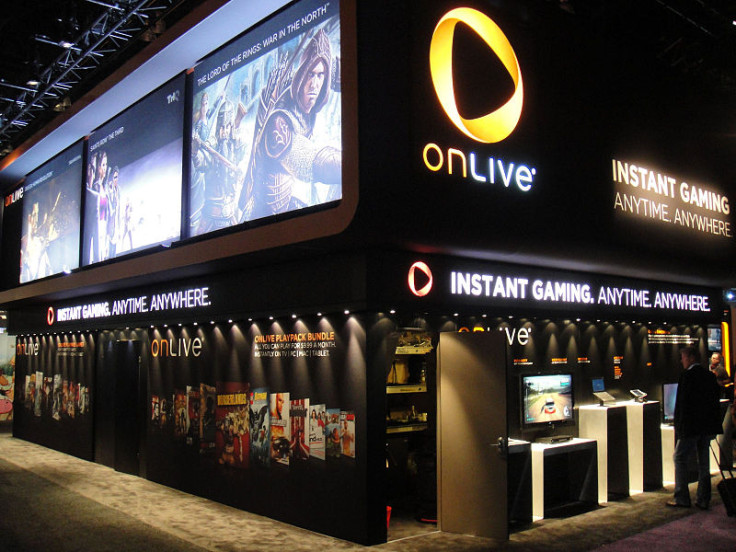Could Microsoft's DeLorean System Change Cloud-Game Streaming?

Microsoft is researching a new system called DeLorean, which aims to predict a gamer's next move in a bid to reduce lag times when playing titles streamed from the cloud.
Instead of sending huge packets of data over the internet to the user's device, the system only sends the next part of the game affected by the predicted move.
In a paper released last week, entitled "DeLorean: Using Speculation to Enable Low-Latency Continuous Interaction for Cloud Gaming", Microsoft named its new technology as "a speculative execution system for mobile cloud gaming" and claimed DeLorean "is able to mask up to 250 milliseconds of network latency".
The concept sounds simple enough when there is only one option available to the player. But in many open-world games, such as the Final Fantasy series or The Elder Scrolls V: Skyrim, there are multiple decisions a user could make in each level of the game.
To improve its chances of being correct, the system makes a few different predictions based on the routes available, instead of just one.
Before the choice is offered to the player, the system renders a few possibilities and feeds them back to the games system.
Once the player makes their decision, the system would in theory have picked the right action and the data relating to the decision would have downloaded and be waiting to be put into action.
Predictive technology
According to Microsoft, the DeLorean system is able to calculate the future using four areas of predictive technology.
These are future input prediction (using a player's recent behaviour to predict future behaviour), state space sampling and time-shifting (the speculation of multiple possible outcomes), misprediction compensation (if a prediction error occurs, the player is given a frame very close to what they ought to be seeing) and bandwidth compression (the use of a video-encoding scheme that chooses frames based on their visual similarity so that they can be compressed and processed faster).
So far, the system has been tested on two modified games, Doom 3 and Fable 3.
Although there are still minor differences in DeLorean's streaming speed when compared with the speed on a low-latency network (delays not visible to the human eye), Microsoft says its focus groups of players prefer DeLorean to the traditional cloud-based gaming that is currently on offer.
OnLive

OnLive is just one of those cloud-based gaming services. Launched in 2010 to great fanfare, the very first cloud-based gaming system was touted as being able to change the gaming industry and take the focus away from traditional gaming consoles - only to flop two years later and have to lay off most of its staff.
The promise of OnLive was it would be more convenient than a normal system to play on. All users had to do in order to start playing was plug a device into their PC or mobile device.
However, OnLive's servers couldn't handle the demand from so many users streaming games to their devices, so gameplay was frustratingly slow, there were long lag times and the quality of the animation being rendered was inferior to that of a games console.
The system also did not offer any exclusive games like its competitors – all the games available could be played on other platforms. So why would any gamer buy a new console when they already owned one that could run the same game at a better quality?
Although OnLive has now clawed its way back to the surface, launching CloudLift in March, it had to change its business model.
To preserve good game performance in the home, OnLive has gone from offering a gaming cloud alternative to providing a service that pairs games installed on your device (PC or games console) with the games it has in its cloud library.
Can Microsoft's DeLorean succeed where others have failed, or will it fall victim to the same complications? The company has not revealed whether the system is intended for the Xbox One or a different piece of hardware instead.
As a major player in the video-game console market, and a computing giant in general, it would not be difficult for Microsoft to command the kind of data centres and server hardware required to support such a system. And if it comes as a bonus in the already popular XBox One, gaming fans are likely to jump on board.
However, cloud-based streaming has not been popular so far, with players prefering to either buy physical games or download them directly from the proprietary gaming networks such as Sony's PlayStation Network or Microsoft's Xbox Live.
But Sony has its own cloud-based gaming service, PlayStation Now, which it is rolling out globally at open beta-testing stage. Once fully operational, it will allow gamers to play titles on their TVs, PlayStation 4s, PS Vitas or any other devices signed into the service.
So if Sony convinces players that PlayStation Now can become an essential part of their gaming world and Microsoft's DeLorean offering makes a positive impact, the popularity of these cloud-based services is only likely to grow.
© Copyright IBTimes 2025. All rights reserved.





















